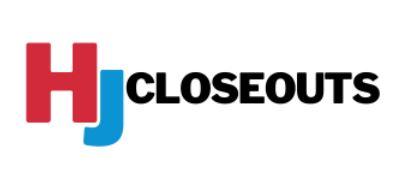Wholesale school supplies refer to products that are sold in bulk quantities to retailers, educational institutions, businesses, or individuals at discounted prices. These supplies typically include a wide range of items needed for educational purposes, such as:
- Writing instruments: Pens, pencils, markers, crayons, etc.
- Notebooks and paper: Exercise books, loose-leaf paper, drawing paper, etc.
- Stationery: Erasers, rulers, sharpeners, glue sticks, etc.
- Backpacks and bags: School bags for students to carry their belongings.
- Arts and crafts materials: Paints, brushes, scissors, colored paper, etc.
- Classroom equipment: Whiteboards, chalkboards, bulletin boards, etc.
- School uniforms and accessories: Shirts, pants, skirts, ties, etc.
- Educational toys and games: Learning tools for young students.
- Calculators and other technical instruments.
If you're interested in purchasing wholesale school supplies, please visit our website to check out the whole school supply inventory.
When a business has too much inventory, it is facing the issue of excess inventory, also known as overstock or surplus inventory. As mentioned earlier, this occurs when the quantity of goods or products in the company's possession exceeds the actual demand or sales requirements.
Having too much inventory can be problematic for several reasons:
Costs: Excess inventory ties up working capital and leads to increased holding costs, including storage, insurance, and potential obsolescence expenses.
Reduced Cash Flow: With a significant portion of capital tied up in excess inventory, the business may face cash flow challenges and have less money available for essential operations and investments.
Risk of Obsolescence: Products sitting in inventory for extended periods are at risk of becoming outdated or obsolete, reducing their value and potentially leading to losses.
Storage Space: Excess inventory may require additional warehouse space or storage facilities, which can be costly and inefficient.
Opportunity Cost: The capital invested in excess inventory could have been used for other purposes, such as research and development, marketing, or expansion.
Increased Management Complexity: Managing excess inventory can be time-consuming and divert attention from other critical aspects of the business.
To address the issue of too much inventory, businesses can implement several strategies:
Discounts and Promotions: Offer discounts or run promotions to incentivize customers to purchase excess inventory.
Liquidation: Sell excess inventory to liquidators or through online marketplaces at discounted prices.
Adjusting Production or Procurement: Review and adjust production or procurement quantities based on actual demand and sales data.

Improved Forecasting and Inventory Management: Implement better forecasting techniques and inventory management systems to ensure optimal inventory levels.
Returning to Suppliers: Negotiate with suppliers to return excess inventory or explore buyback arrangements.
Donations: Donate excess inventory to charitable organizations for potential tax benefits.
By effectively managing and reducing excess inventory, businesses can optimize their operations, free up capital, and improve their overall financial health. It's crucial to strike the right balance between having enough inventory to meet customer demand and avoiding the costs and risks associated with excess stock.
Buying school supplies at wholesale prices can offer numerous benefits, both for individuals and businesses. Here are some of the advantages of purchasing school supplies at wholesale:
Cost savings: One of the most significant benefits of buying school supplies wholesale is the cost savings. Wholesale prices are generally lower than retail prices, allowing you to buy in bulk at a reduced rate. This is particularly advantageous for schools, businesses, or parents with multiple children, as it can lead to substantial cost reductions.
Bulk purchasing: Wholesale buying allows you to purchase school supplies in large quantities, ensuring you have an ample supply to meet the needs of students or employees throughout the year. Great way to prepare gifts for the kids in need.
Discounts and promotions: We offer special discounts and promotions to customers who buy in bulk. These deals can lead to even greater savings, making it a cost-effective option for schools and businesses.
Convenience and time-saving: By buying school supplies wholesale, you can streamline the purchasing process. Instead of shopping for individual items, you can order everything you need in one go, saving time and effort.
Availability of a wide range of products: Wholesalers typically offer a wide variety of school supplies, from stationery to arts and crafts materials. This means you can find everything you need in one place, making the shopping experience more convenient.
Reselling opportunities: If you're a business or organization buying school supplies wholesale, you may have the option to resell the excess items, generating additional revenue.
Customization options: Some wholesalers offer customization options, such as printing your school or business logo on certain supplies. This can help promote your brand and create a sense of unity among students or employees.
Quality assurance: Reputable wholesalers often provide high-quality products, which can be crucial for school supplies that need to withstand daily use.
Environmental impact: Buying school supplies wholesale in larger quantities may reduce packaging waste compared to buying individual items.



